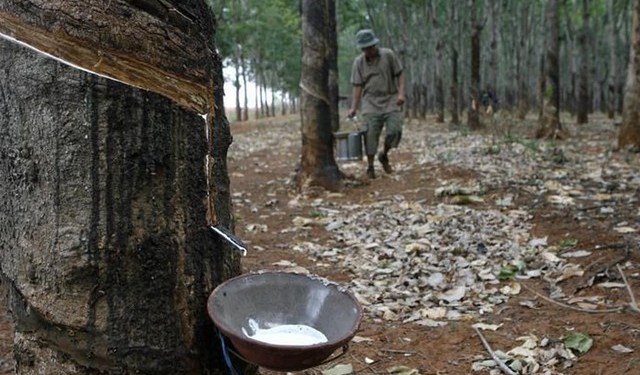Rubber climbed as the yen weakened to the lowest level in seven weeks after the U.S. called for a pause in authorizing military strikes on Syria, boosting demand for the commodities priced in the Japanese currency.
The contract for February delivery gained as much as 1.1 percent to 285.5 yen a kilogram ($2,844 a metric ton) on the Tokyo Commodity Exchange, before trading at 285 yen at 11:55 a.m. local time. The gain pared losses to 5.9 percent this year.
The yen dropped against the dollar after U.S. President Barack Obama asked Congress to delay a vote on military action against Syria, and a worldwide equity rally eroded demand for Japan’s currency as a haven. The yen fell 1.7 percent in the past week, the biggest loss among 10 developed market currencies tracked by Bloomberg Correlation Weighted Indexes.
“A weakening yen helped boost gains in commodities in Japan,” Gu Jiong, an analyst at broker Yutaka Shoji Co., said by phone from Tokyo.
Thailand, the world’s largest rubber producer and exporter, will double the subsidy paid to farmers to 21.2 billion baht ($659 million) after they threatened to step up protests across the nation’s key plantation areas, Deputy Government Spokesman Chalitrat Chandrubeksa said yesterday. The subsidy is equivalent to a rubber price of 12 baht per kilogram, according to the government.
Thai rubber free-on-board fell 1.4 percent to 86.15 baht a kilogram yesterday, according to the Rubber Research Institute of Thailand. The contract for January delivery in Shanghai rose 0.8 percent to 20,710 yuan ($3,384) a ton.
Source: Bloomberg



























